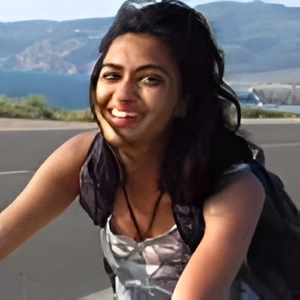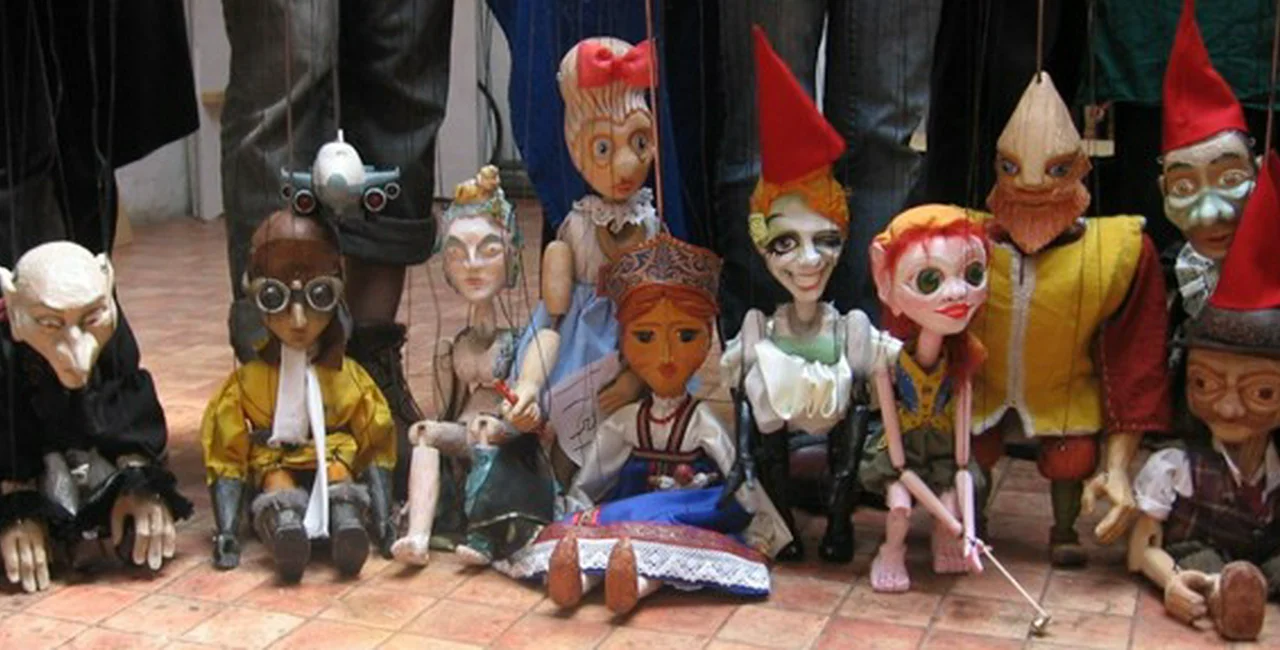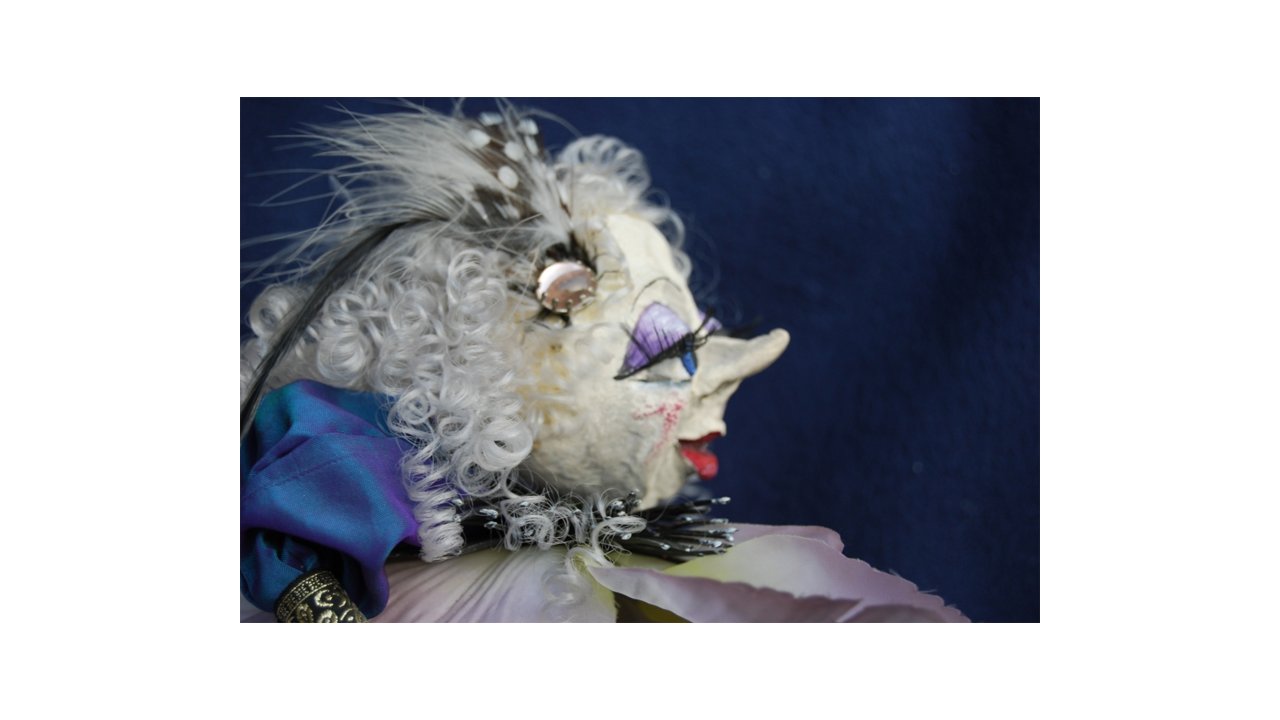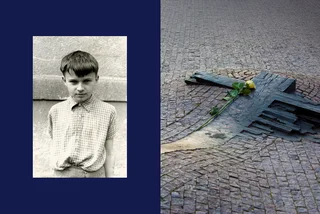If you ask Brigitte Dörner, she’s got the world on a string. The self-taught puppet maker moved from her native Germany to Prague in 2010 “for the sake of the puppets” and to connect with the international puppeteer community. Once in Prague, Dörner took a marionette carving workshop with local puppet maker Mirek Trejtnar, who runs PuppetsinPrague.eu. Since then, Dörner has concentrated her efforts on creating puppets with a “real life” on stage under the label of Dark Smile Studio and also runs workshops locally and abroad, including Germany and Jordan. Dörner spoke with Expats.cz about Prague’s puppet reputation, political puppets in Jordan, and eating chocolate faces.
How would you describe your relationship with puppets?
Well, how do I put this? I have a very intimate relationship with everything that has a face. I can’t eat chocolate Easter bunnies, chocolate Santa Clauses. They always grow old and grey in my cupboard, and my family stopped giving them to me. I believe in a soul in almost everything…even a computer. So a puppet for me is more than the material it is made of. It has a face, therefore it has a soul. The moment it looks at me, I’m lost. And the world of puppets is something I dedicate my time and my heart to. I’m experiencing it as a very friendly place, full of creativity and playfulness, full of wisdom of the heart and full of the most wonderful people I could ever imagine.
Who or what were your influences and inspirations when you first started creating puppets?
I guess when you walk through life with open senses, you’re always inspired by something. Your surroundings, fairytales, whatever. But I’ve never been inspired consciously by anybody. I’m almost completely an autodidact and never took workshops on how to make puppets or read a book about “how to” or something like that. The only class I ever took was the marionette carving class with Mirek Trejtnar here. I discovered other puppet artists when I discovered the world of Facebook, which was just about three years ago. My inspiration comes from my rich and colorful fantasies, from my desire to illustrate my inner pictures and make them touchable. And my techniques are based on trial and error.
Why do you think Prague has become such an important place for people from around the world to learn about puppet making?
Here in Czech Republic, puppetry has always been alive and was always appreciated as a form of art and even as a medium for political expression, to transport forbidden content during the many turbulent political eras this country went through. This may explain the incredible high level of crafting and performing skills of Czech puppeteers and teachers. So DAMU–the branch of Academy of Performing Arts that is related to puppetry and alternative theater–became one of the most acknowledged places in the world to become an academic puppeteer.
What kind of workshops do you offer?
I started conducting workshops this year in January, when I traveled to Amman, Jordan. I had a commission for two huge table top puppets with elements of Japanese Bunraku technique (moveable eyes and moveable jaws) for a friend’s puppet show for adults for the Dafa Puppet Theater. And as another aspect of our collaboration, we started doing workshops together. We created different types of puppetry workshops for students, kids in refugee camps, kids with special needs and adults. Just recently, I also started giving mask workshops, which is a nice complement to puppetry and a lot of fun.
How was the puppet experience in Jordan?
I traveled there twice to collaborate with one of my international puppet friends, Husam Abed from Dafa Puppet Theater. He commissioned two puppets with me the year before, when we met here in Prague, where he visited Prague Summer Theater School at DAMU. We were introduced to each other by a mutual friend and decided to work together. The puppet show I created the two main characters for was a political satire written for adults and became a huge success in Jordan. In that context, we also started providing workshops together. He has a huge experience with puppetry workshops in refugee camps, at schools and with young adults with special needs and opened the doors for me to gather my teaching experiences there as well. For me, these experiences are unforgettable for several reasons. First, the openness and the hunger for all kinds of artistic and creative work are just amazing. Every effort and engagement is so much welcomed and appreciated. People are gentle and warm-hearted and made me feel like I was at home. Especially the kids with special needs allowed me to discover abilities within me that I was not aware of having. My gratefulness for that will never end.
What’s difficult about your work?
Well, the challenges as a full time puppet maker are definitely surviving, since you can’t rely on a regular income. Sometimes you have three projects going on at the same time, and after that there might be nothing for a while. If this is your only income and you have no savings or a rich husband, you should be willing to live a simple life. I can only speak for myself, but I have the same impressions about other puppeteers I know. But for me it’s the most rewarding work I’ve ever done in my life, so it’s totally worth it.
Recently, you have created several puppets for Prague Playhouse’s “A Christmas Carol”, your first appearance before a large audience in Prague. But you are also writing your own puppet play, Two Moons, about religious struggle. What inspired this?
This is based on my visit to Mount Nebo in Madaba, Jordan. It’s the place where Moses went to die, and for me it was such a profound experience because I had the taste of eternity on my lips. I became fully aware of the madness we’re doing to ourselves with our ongoing fights about religions and who is right and who is wrong. I could not understand this before, but standing in a Christian church on now Arabic ground, in almost walking distance to Jerusalem, Bethlehem, Jericho, Ramala, etc., listening to Greek Orthodox, Latin and Arabic sacral music at the same time gave me a physical sensation that keeps shaking my bones until today.
What does it really mean to be a puppet maker, a puppeteer?
I can only speak for myself, though I could imagine that other puppeteers might share my opinion–for me it means the license to play! The license to stay young, to create all possible worlds existing in my head, to dream, to bring joy, to make friends all over the world, to never be bored by routine, to educate without pressure or even punishment, to encourage, to not take things too seriously, to enter a world of its own…to be happy.
Related articles












 Reading time: 5 minutes
Reading time: 5 minutes 








































